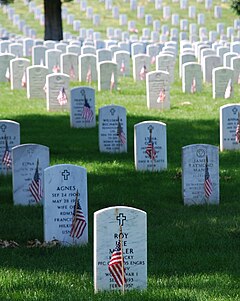
One of the cousins came home in a few days and brought a new husband; they would stay, they said. Then a man from town brought a package for Andrew Jackson. He opened it and saw a dress of this mother's and a few trifling possessions.
"Her Bible's not here," Andrew said in a dull voice. "I'd like right well to have her Bible." Then he turned and walked into the woods
"Shall we go fetch him?" the cousin said anxiously.
"No. He wants his own," her husband answered. "He's suffered too much for his years. But Andy's got spunk. He'll come back. We'll be her with him then."
When Andrew Jackson came back to his kinfolk, they found him changed. He was serious, willing to listen when his uncles talked. Life in the Waxhaws had changed, too.
Lord Cornwallis had been defeated at Yorktown in October, that year, 1781, though peace papers were not signed until September of 1783. But people of the Carolinas could not wait for that. When the fighting ended, those left alive moved back to their homes and farms. Tories who had fought against the new republic or had been spies and informers, found themselves hated. They moved to Canada or to England.
During the British stay in Charles Town officers had taken most of the nice homes - a usual wartime custom. The evicted owners fled north into the "up-country" for refuge. These city folk now moved back. A few had lived in the Waxhaws region and would be missed. Andrew had several friends he was sorry to see depart.
"When you come to Charles Town, our house is your home," they told him. Andrew promised. But he did not expect to go to the city. There were no cattle to sell.
Days were filled with work. Schools opened. Andrew attended first one and then others as he lived with various relatives. His Uncle Robert, James Crawford, and George McKemey were glad to have an extra hand. but Andrew was restless. The days of adjustment were hard for everyone.
Waxhaw men, like many patriots over the country, were impoverished. In the Carolinas houses had been damaged or burned to the ground. Furniture, cooking utensils, tools, had been stolen or wantonly destroyed. Countless things were needed - horses, cattle, chickens, grain, new buildings. There was no money for buying and nothing to give in trade.
"They say if you make out an account the state will pay for what you lost," a neighbor reported.
"So I've heard," Uncle James said. "I'm making a record now. So is Robert."
Major Robert Crawford had served his country with distinction for seven years. Now he had nothing left but his land. He turned in a modest claim for part of his losses. The state treasurer fussed and trimmed it down. The major was not surprised; he knew the state had very little money. Finally he collected a small fraction of what the treasurer had agreed was a fair claim.
Other Carolinians, hearing of such things, packed up and moved West. Beyond the mountains they would find Indians, toil, and hardship, but they could make a new start. Americans paid a big price for this new thing called freedom.
Andrew Jackson heard talk about these things, and it occurred to him that he too, was paying a price. Not in money, for he had none to lose, but in something dearer, something that could never be replaced. His mother and two brothers were dead. Indeed, his father's death, though long before the war, was part of the price paid for Andrew to be born in a land where men were to have equality under the law. - Excerpts taken from Chapters 3 & 4 of Andrew Jackson by Clara Ingram Judson
...In memory of those who served both here, in the U.S., and abroad for our precious gift of freedom.
No comments:
Post a Comment